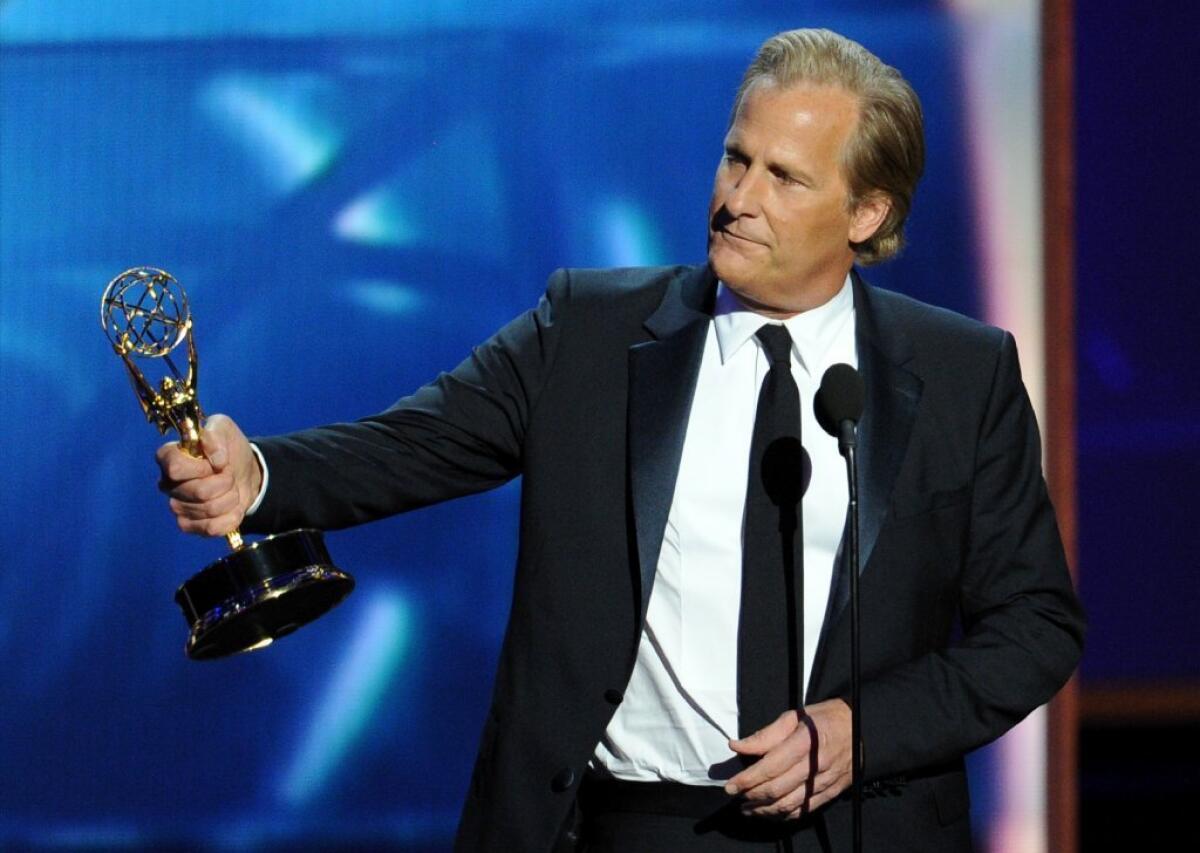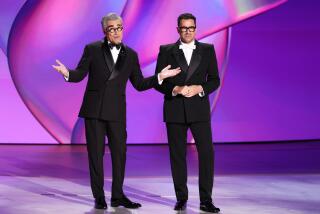Emmys 2013: Why those TV ratings weren’t as great as you’d heard

- Share via
Everyone knows Sunday’s 65th Primetime Emmys did great ratings, right? Not so fast.
Amid tough competition — “Breaking Bad”! “Dexter” finale! Da Bears! — the three-hour awards show hosted by Neil Patrick Harris vaulted over withering reviews and kick-stepped its way to 17.6 million total viewers — the most-watched Emmys since 2005, according to Nielsen. That was far better than last year’s ABC telecast, which did 13.3 million.
All good, yes? Well maybe not, actually — the Emmy numbers provide a great example of how 70-character headlines and social media can distort the more complicated reality of a situation.
Emmys 2013 full coverage: Best & worst | Winners / top nominees | Red carpet arrivals
Make no mistake, CBS deserves a victory lap. Selling the Emmys is no easy task, especially when rival networks refuse to roll over and play dead so industry swells can savor their celebratory moment. Scoring a decent audience is even more impressive when top honorees include shows most viewers have never watched and will never watch (e.g., HBO’s “The Newsroom”) and Emmy producers seem determined to lard the proceedings with as many irrelevant song-and-dance numbers as possible.
But CBS achieved its best-in-eight-years headline due not to the virtues of the Emmys telecast itself but rather to football.
The ceremony was immediately preceded by a high-rated NFL matchup between the Buffalo Bills and the New York Jets. The game was close and running longer than expected — in fact, the Emmys ended up having to start three minutes later than scheduled because of the overrun.
Final ratings aren’t yet available, but it’s already clear that the game had a big influence on the final Emmy average. When it ended, the Jets-Bills contest had about 19 million viewers glued to their sofas. And many of them didn’t immediately grab the remote when football signed off and a thin blond actor-turned-MC suddenly materialized on their screens.
Emmys 2013 full coverage: Timeline | Photo booth | Emmys presenters
That means that for its first half-hour or so, the Emmys enjoyed an artificially boosted rating, with probably something on the order of 2 million or 3 million viewers sticking around not because they’re just insane Jeff Daniels fans but because they were busy babbling about the Jets game.
Why does that matter? Because Emmy ratings are averages, and very high (or very low) numbers in a data set always distort averages.
And that is exactly how things played out Sunday night. After the first half-hour, the Emmy audience declined markedly in every single half-hour afterward, shrinking to about 11.7 million viewers by the last half-hour (according to early numbers).
Without that NFL lead-in, the Emmys probably would have averaged about 14 million — still a bit better than last year (when ABC, it should be noted, had no football lead-in to help out) but not the sort of thing that would lead people to draw some larger conclusion about the symbolic meaning of the numbers.
Given short attention spans, most readers will probably seize on the “best since 2005” takeaway. But a funny thing about 2005, when the Emmys did 18.6 million: That year CBS had a football lead-in too.
ALSO:
Emmys 2013: Telecast posts highest ratings since 2007
Emmys 2013: Making sense of a bipolar awards evening
More to Read
From the Oscars to the Emmys.
Get the Envelope newsletter for exclusive awards season coverage, behind-the-scenes stories from the Envelope podcast and columnist Glenn Whipp’s must-read analysis.
You may occasionally receive promotional content from the Los Angeles Times.











